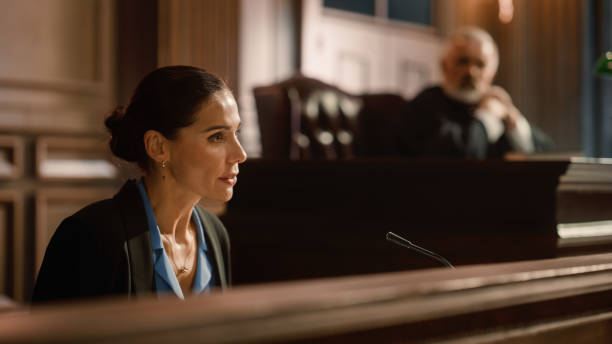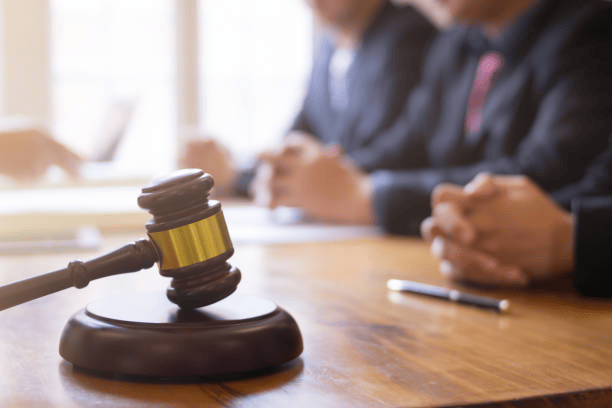Warning: This article may have content that may be triggering to some readers. We only intend to inform our readers about double jeopardy in Australia. Please read with caution.
What is double jeopardy? Imagine facing trial for a crime, only to be found innocent. Yet, years later, the specter of accusation arises once more. This is the unsettling scenario that double jeopardy seeks to prevent.
This legal principle, enshrined in various legal systems, serves as a safeguard against the potential for repeated prosecution for the same crime. But is it a shield against all forms of legal scrutiny? Read on to learn more.
New South Wales and Queensland Laws
In New South Wales, there are limited exceptions to double jeopardy under specific circumstances:
- Fresh and compelling evidence: If significant, reliable, and highly significant new evidence emerges after an acquittal for a serious offence, a retrial may be considered.
- Serious offences: These primarily include crimes with the potential for a life sentence, such as murder, aggravated sexual assault, large-scale drug trafficking, and certain terrorism offences.
This process is governed by the Section 100 Crimes (Appeal and Review) Act 2001, empowers the state’s Court of Criminal Appeal (NSWCCA) to order a retrial upon request from the Director of Public Prosecutions if:
- Fresh and compelling evidence against the accused person exists.
- Retrying the individual is considered in the best interests of justice.
It’s important to note that this exception doesn’t apply to situations where the acquittal involved a lesser charge than originally faced, like manslaughter instead of murder.
Queensland Laws on Double Jeopardy: A Comparative Breakdown with NSW Legislation
1. The Criminal Code Act‘s Section 17 states that you cannot be charged with the same offence again if you have either been found guilty of it or found not guilty of it. This keeps you from having the same offence tried again and subjected to incessant interrogation.
2. The Exception: Although this rule is normally applicable, there are also a few significant felony exceptions:
- Fresh and compelling evidence: If new, reliable, and significant evidence emerges after your acquittal, and retrial is deemed fair and just, you may be retried for murder (Section 678B).
- Tainted acquittal: A “tainted acquittal” happens when someone is found not guilty (acquitted) of an administration of justice offence, but there’s strong evidence they actually committed the crime. This evidence usually comes from someone (including the acquitted person themselves) being convicted of interfering with the trial or witness tampering. If your acquittal was obtained through illegal means like witness intimidation, you may be retried for a serious offence punishable by at least 25 years (Section 678C).
Proving Fresh and Compelling Evidence
Fresh and compelling evidence is needed in double jeopardy cases. So, what are the challenges?
- High Bar: The standard for fresh and compelling evidence is incredibly high. It must be reliable, substantial, and highly probative of guilt, meaning it significantly strengthens the case against the defendant.
- Discovery Timeline: Discovering new evidence after an acquittal can be difficult, especially after significant time has passed. Traditional investigative avenues may have been exhausted during the initial trial.
- Ethical Considerations: Obtaining evidence ethically is crucial. Coercion, intimidation, or manipulation are strictly prohibited.
Here’s how to approach double jeopardy matters:
- Scientific advancements: New technological advancements in DNA analysis or forensic techniques might uncover previously unavailable evidence.
- Witness recantation or new trial-relevant information may be fresh and compelling.
- Uncovering Prior Concealment: If evidence was deliberately concealed by a party involved in the original trial, and its existence is newly discovered, it potentially qualifies.
Double Jeopardy Case A
1. R v Carroll (2002) 213 CLR 635
In a case in 1973, the lifeless body of a 17-month-old infant, who had fallen victim to sexual molestation, was discovered on the roof of a park restroom, clad in women’s undergarments. Despite being twice convicted; the alleged perpetrator was ultimately declared innocent due to successful appeals based on legal technicalities and the principle of double jeopardy.
Notably, there was no double jeopardy exception during that period (2002–03). Subsequent 2007 revisions allowed retrials for violent crimes, including murder, when new, compelling evidence like previously unavailable DNA and forensic findings emerge.
Twelve years after pleading not guilty, the accused was eventually found guilty by a jury, with the evidence of a bite mark on the leg playing a significant role. More than 14 years following his murder trial, the accused, Carrol, faced perjury charges.
Although initially convicted, the High Court overturned the verdict on appeal, citing the application of the double jeopardy rule. This grave incident prompted Australia to reconsider the application of double jeopardy laws in the context of criminal proceedings.
Double Jeopardy Case B
2. Frits George Van Beelen v The Queen [2017] HCA 48
The case of Van Beelen explores the meaning of “compelling evidence” in the context of double jeopardy. Mr. Van Beelen was convicted of murder in 1972. He appealed, claiming new evidence (a report by Professor Horowitz) warranted a retrial under Section 100 of the NSWCCA
The report challenged the original estimate of the victim’s time of death, a crucial point in the trial.
The High Court found this new evidence to be significant. But was it “compelling”? The Court ultimately rejected the appeal, deeming the evidence not compelling because:
- It didn’t significantly impact the likelihood of someone else committing the crime.
- It wouldn’t likely change the jury’s verdict.

How Can Our Criminal Lawyers Help?
JB Solicitors can thoroughly review your case, including the original charges, trial details, and any potential “fresh and compelling evidence. Based on the specifics of your case, our criminal lawyers can assess whether double jeopardy applies and if there are any potential exceptions.
We continue to speak for the rights of our clients and effectively present your arguments at the supreme court. Moreover, we will ensure that the law is correctly followed, and steer clear of the legal system’s complications. are dealing with a double jeopardy issue.
We can provide tailored legal counsel and assistance depending on the particulars of your situation. Contact us today for more information.
